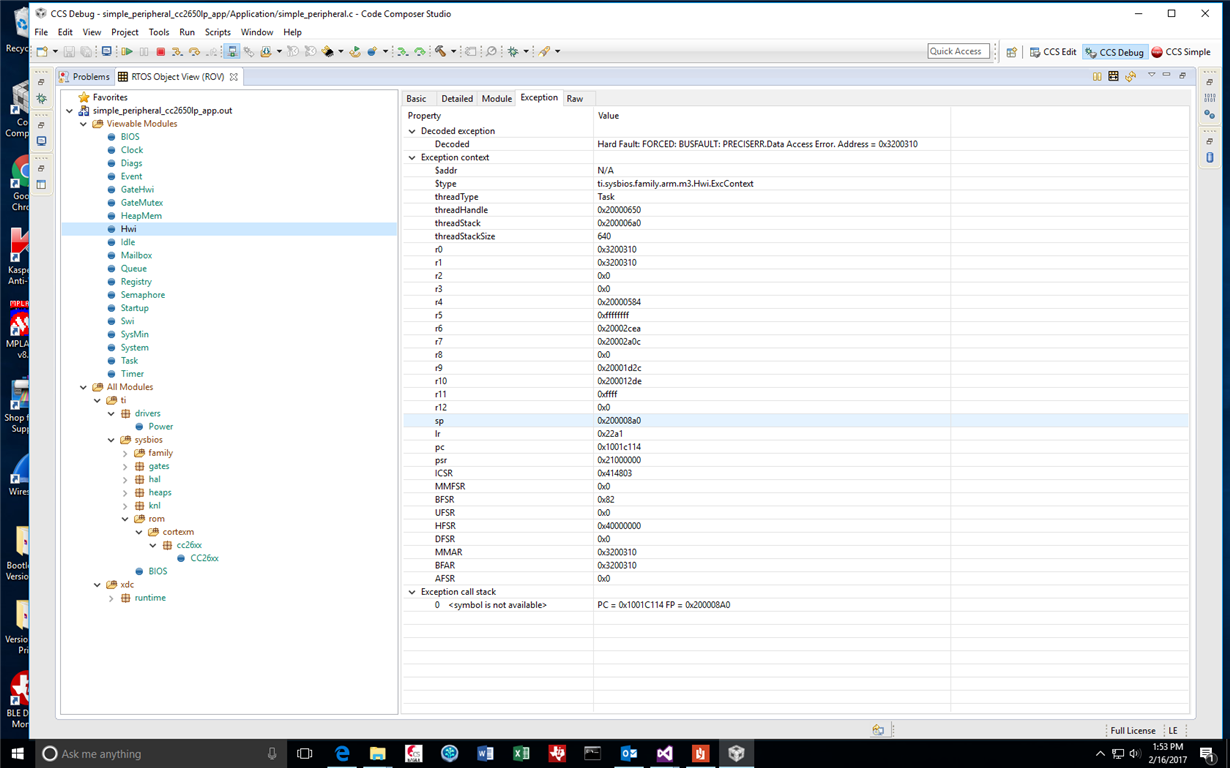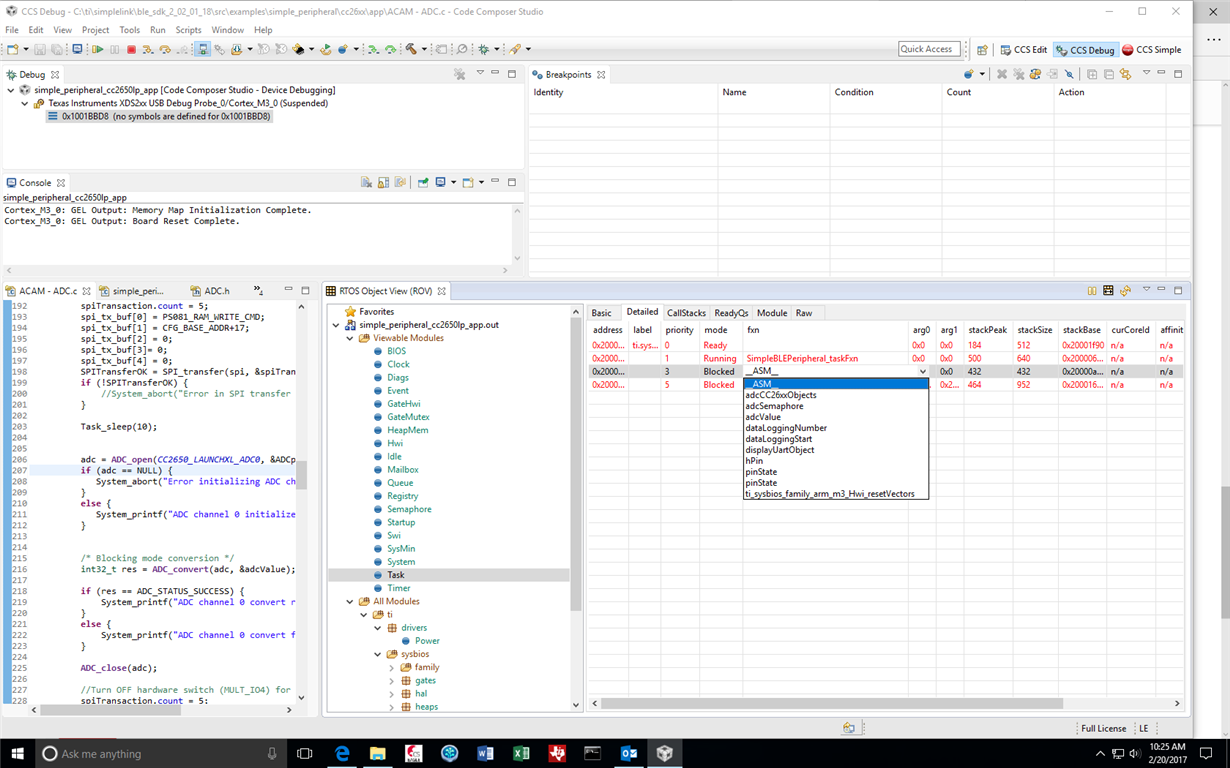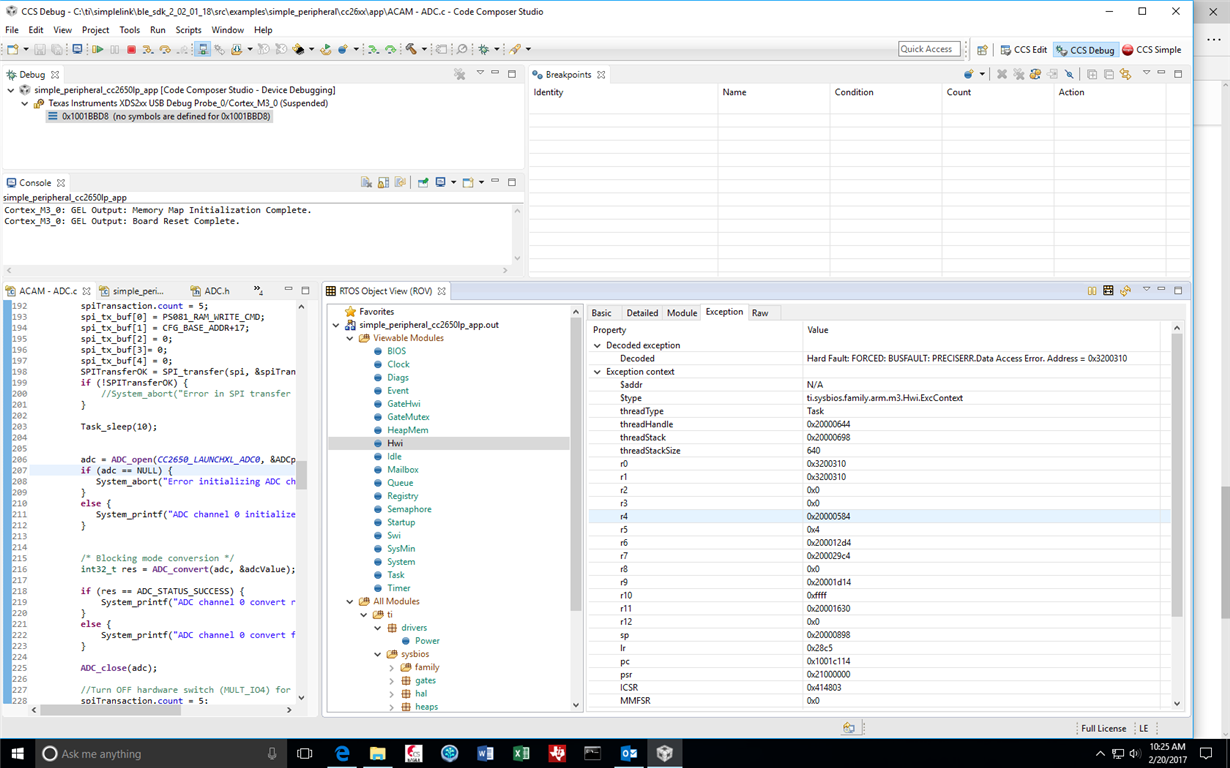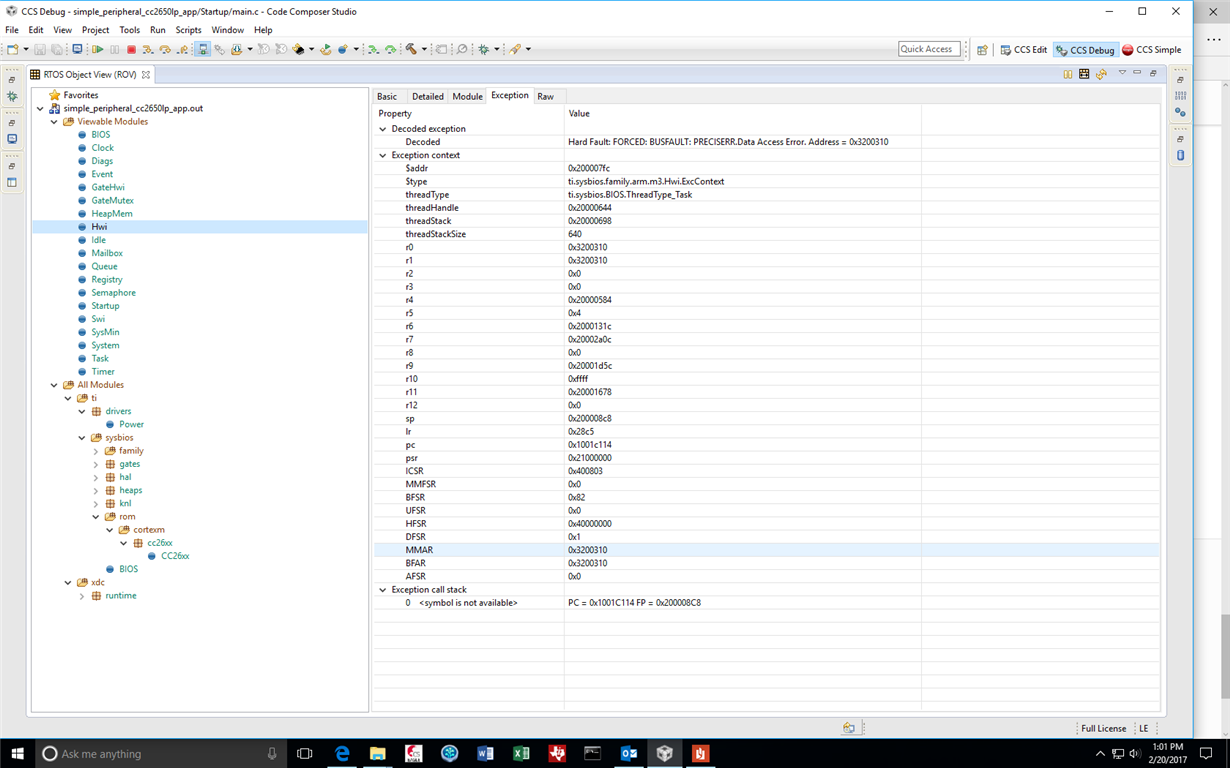Other Parts Discussed in Thread: CC2650
Tool/software: TI-RTOS
CC2640 4x4 custom board, TI RTOS 2.20.1.08, ble_sdk_2_02_01_18,
simple_peripheral_cc2650_lp_app.
Is a dedicated pin needed on the board when defining the hardware
attributes of the ADC driver? (HW attribute definitions attached for
both uart and adc drivers).
The application uses both the UART and ADC drivers, but never at the
same time. If there is no activity on the UART_RX pin, the UART_RX becomes
the analog input pin to the ADC driver.
The ADC driver by itself is working fine in the application. When the UART is used,
(only for sensor calibration, with communication to an external processor), the sensor
reaches a hard fault exception and fails to communicate properly through the UART
(screenshot attached).
When the UART is in use, I'm wondering if the ADC driver is being accessed without
being powered on causing this exception.
Thanks,
Priya
const ADCCC26XX_HWAttrs adcCC26xxHWAttrs[1] = {
{
.adcDIO = Board_UART_RX,
.adcCompBInput = ADC_COMPB_IN_AUXIO3,
.refSource = ADCCC26XX_FIXED_REFERENCE,
.samplingDuration = ADCCC26XX_SAMPLING_DURATION_2P7_US,
.inputScalingEnabled = true,
.triggerSource = ADCCC26XX_TRIGGER_MANUAL
},
};
const UARTCC26XX_HWAttrsV1 uartCC26XXHWAttrs[CC2650_LAUNCHXL_UARTCOUNT] = {
{
.baseAddr = UART0_BASE,
.powerMngrId = PowerCC26XX_PERIPH_UART0,
.intNum = INT_UART0_COMB,
.intPriority = ~0,
.swiPriority = 0,
.txPin = Board_UART_TX,
.rxPin = Board_UART_RX,
.ctsPin = PIN_UNASSIGNED,
.rtsPin = PIN_UNASSIGNED
}
};





